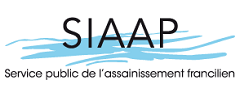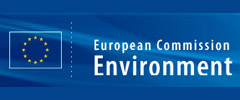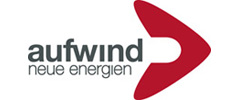”New” POPs in marine mammals in Nordic Arctic and NE Atlantic areas during three decades
Marine mammals are highly valued in the countries surrounded by the North Atlantic Ocean.
05.12.2011 |NORDEN: Official co-operation in the Nordic region
Marine mammals are highly valued in the countries surrounded by the North Atlantic Ocean. For centuries, marine mammals have served as a nutritious food resource and provided for warm clothing. In addition, many marine mammals have earned a unique position in the minds of people as mysterious and magnificent creatures inhabiting the vast oceans. However, marine mammals are in a particularly vulnerable position as regards environmental pollutants, because of the large fat stores in their bodies which serve as a “magnet” to a large number of persistent and toxic pollutants.
The continuous effort which the Nordic countries in cooperation put into describing and protecting the marine environment so as to evolve into new joint means to sustain environmental welfare and health. The records show that some of the pollutants which have been subject to concerted international regulatory measures are declining. For the marine mammals, who are the kings and queens in the ocean, the decline is however slower to manifest. This is partly due to the fact, that many marine mammals have a long lifespan and large fat reserves where pollutants are stored, but also because the pollutants may be persistent. Persistence means, that these contaminants do not disappear from the environment in terms of days, weeks or months.
A Nordic Council of Ministers supported collaboration between Norway, Denmark/Greenland, Faroe Island, Iceland and Sweden set out to look for possible trends in “new” contaminants in marine mammals in Nordic Arctic waters.
The fact, that the Nordic Council and the Nordic Environmental Ministers prioritize timely scientific research in this area illustrates, that the Nordic countries share a common hope and confidence for a cleaner environment in the future. We share the optimism, that one day we will succeed in protecting the environment, the marine mammals and our-selves from these hazardous compounds.
To learn more and download the publication visit norden.org.
Related News
Calling for periods free from plastic & hazardous chemicals
Letter to Frédérique Ries, MEP, European Parliament on behalf of the #BreakFreeFromPlastics movement
04.09.2018
Together for sustainable sanitation and water security worldwide!
Stockholm, 26-31 Aug 2018: WECF participated in the World Water Week 2018 to further support the worldwide implementation of SDG 6
01.09.2018
Fifth meeting of the Expert Group on Equitable Access to Water and Sanitation, 26 - 27 June 2018
WECF shares experiences on developing and implementing Equitable Access Action Plans
27.07.2018
National Round Table and Training on Drinking Water Issues and Priorities in Macedonia
Working Package 2 – Educational measures for responsible institutions and drafting of regulations, among the on-going project „Water and Sanitation Safety Planning in Romania, Albania, and FYR Macedonia”
27.07.2018
Training for Teachers on Water and Sanitation Safety Planning
Women in Development and WECF organise a 2-day workshop in Shkodra region, Albania
27.07.2018






































